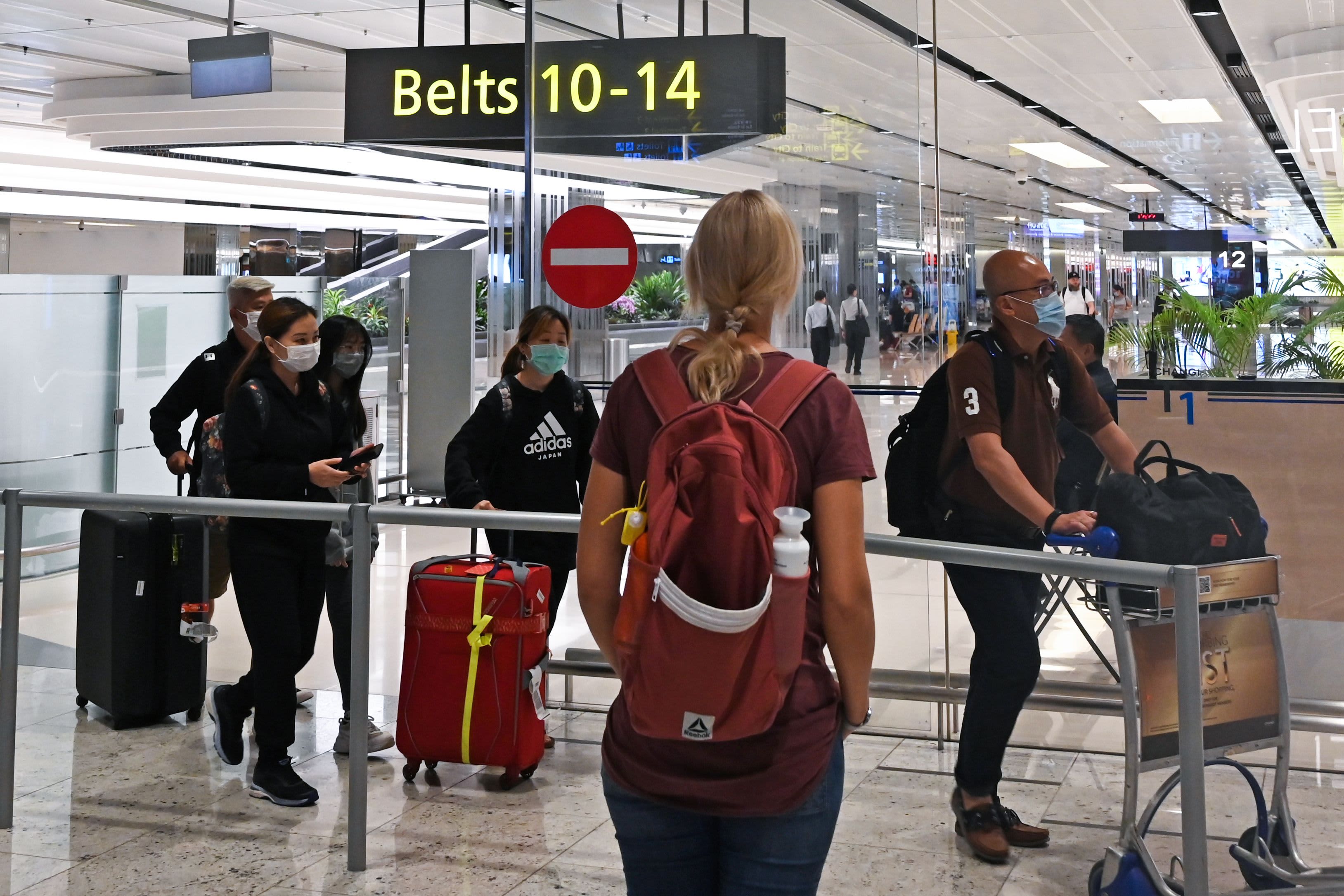Singapore to bar all short-term visitors in efforts to reduce imported coronavirus cases

Passengers wearing face masks, amid concerns over the spread of the COVID-19 coronavirus, walks through the arrival area at Changi International Airport in Singapore on March 16, 2020.
Roslan Rahman | AFP | Getty Images
Singapore will bar entry and transit to all short-term visitors starting from 11:59 p.m. on Monday, the Ministry of Health said in a statement.
The health ministry also said that Singapore will also restrict reentry for long-term work pass holders and their dependents to workers who provide "essential services, such as in healthcare and transport."
Citing the "heightened risk" of imported coronavirus cases, the ministry said these measures are meant to "conserve resources so we can focus on Singaporeans."
In its statement, the health ministry said nearly 80% of cases in the past three days were imported from residents or long-term pass holders returning from overseas. Singapore has confirmed 228 imported cases, according to the ministry's website.
As of noon Saturday, Singapore has reported a total of 432 confirmed cases, of which 140 have been discharged. The city-state on Saturday announced its first two confirmed deaths in the outbreak of COVID-19, the formal name of the new coronavirus.
The measures announced Sunday follow Singapore's other efforts to contain the spread of the coronavirus. The tiny Southeast Asian nation has won praise from the World Health Organization, which said it was "very impressed" with Singapore's contact tracing and moves to limit transmission.
Singapore had previously asked travelers to self quarantine upon return and strictly enforced the policy. Violating stay-home notices can result in work passes or re-entry permits being revoked or validity shortened.
But in contrast with in Europe and the U.S., restaurants and malls in the city state remain open, allowing economic activity to continue. Many businesses have taken precautions like regular temperature checks, staggering work hours, encouraging telecommuting and maintaining a distance of at least one meter (three feet) between people.
— CNBC's Weizhen Tan contributed to this report.
Read More
No comments